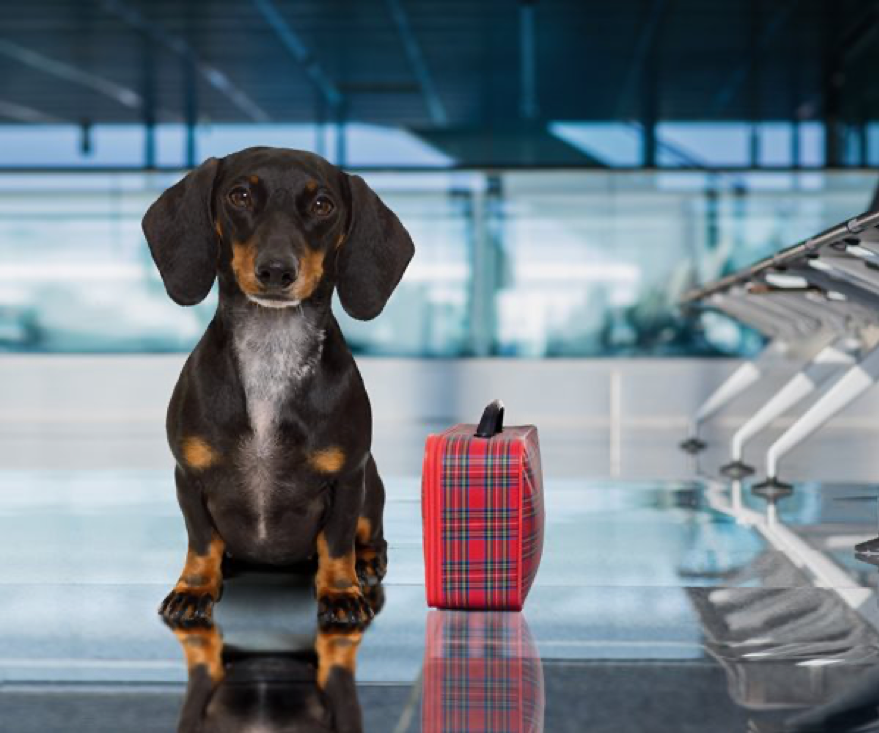Airlines can now ban emotional support animals.

Arguably, there may never be a more appropriate time than during a pandemic for airline passengers to be allowed to take their emotional support animals with them on a flight. However, the Department of Transportation (DOT) announced Wednesday it will no longer consider emotional support animals to be service animals, allowing airlines to potentially ban them from the cabin if they do not conform to their rules for flying with pets.
An emotional support animal (ESA) is any animal companion that offers some type of benefit to an individual with some form of disability. This is different than a service animal, which is specially trained and might assist someone who is blind or deaf, for example.
ESAs on flights are a USA-only thing; the rest of the world doesn’t allow them. The new rule was prompted in part by people falsely claiming their pets were ESAs, thereby avoiding the rules and fees imposed on pets traveling in cabin with passengers. Why did people cheat?
-Airlines weren’t allowed to charge for ESAs, so it was a way to take a small pet in the cabin without having to pay a fee
-On most airlines only pets up to 20 pounds are allowed in the cabin, while there was no weight or size limit on ESAs
Getting an ESA certification has been quite easy; there are lots of online doctors who will provide it. As a result, people have boarded with so-called ESAs that range from turkeys to pigs to miniature camels.
The DOT’s Airline Carrier Access Act (ACAA) now strictly defines a service animal as a “dog that is individually trained to do work or perform tasks for the benefit of a person with a disability.” That means no more guaranteed free flights for calming cats, comforting Capuchins, or mellowing-out miniature horses. Note: Miniature horses and Capuchin monkeys are legitimate service animals; the DOT considered permitting them, but ultimately decided against it.
Under the new DOT ruling, airlines are not allowed to ban a specific breed of dog as a service animal. However, the service animal must be able to “fit within its handler’s foot space on the aircraft,” which could severely limit which breeds are allowed onboard. And the animals must remain harnessed, leashed, or tethered at all time while on the plane.
Those traveling with a service animal will be required to complete a form 48 hours before boarding, attesting that the animal has been trained and has good behavior and good health. Passengers may be limited to no more than two service animals. The policy will go into effect 30 days after it is published in the Federal Register, which will happen shortly.
Per the new rule, a qualifying disability can include a “physical, sensory, psychiatric, intellectual, or other mental disability.” You can access the DOT rule on service animals here.
While the DOT’s new definition of service animals will keep many of the more exotic ESAs off airplanes, it is already feared the DOT’s comments regarding “psychiatric service animals” may provide a fairly large loophole for owners of small dogs who want to break the rules. (“Psychiatric service animal users will no longer be required to provide a letter from a licensed mental health professional detailing the passenger’s need for the animal, nor will they be required to check in one hour before the check-in time for other passengers.”)
In contrast to the treatment of service animals, the new rule gives airlines discretion regarding ESAs. While the preliminary response to the new rule indicates most airlines are inclined to ban them, there is room for an airline to be innovative. For example, an airline could charge a fee for ESAs, require extra seats to be purchased, and/or restrict the number allowed on any one flight.
Decided to abide by the rules and have Mittens or Fido travel as a pet? Click here for suggestions on how your furry friend can travel safely and happily via car, train, or plane.
Twist’s Take: Airlines no longer need to accommodate emotional support animals as service animals, but instead can categorize them as pets.
